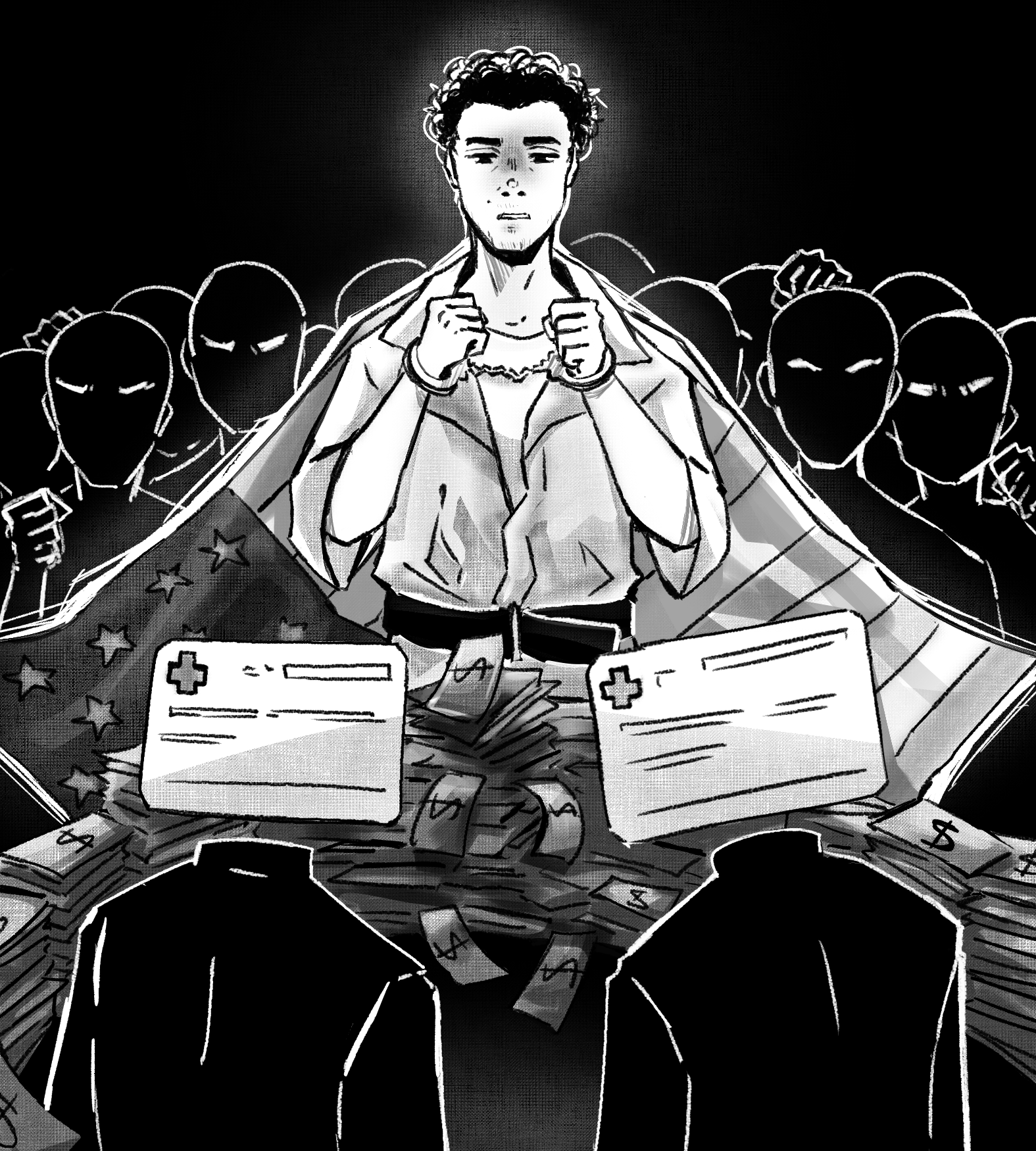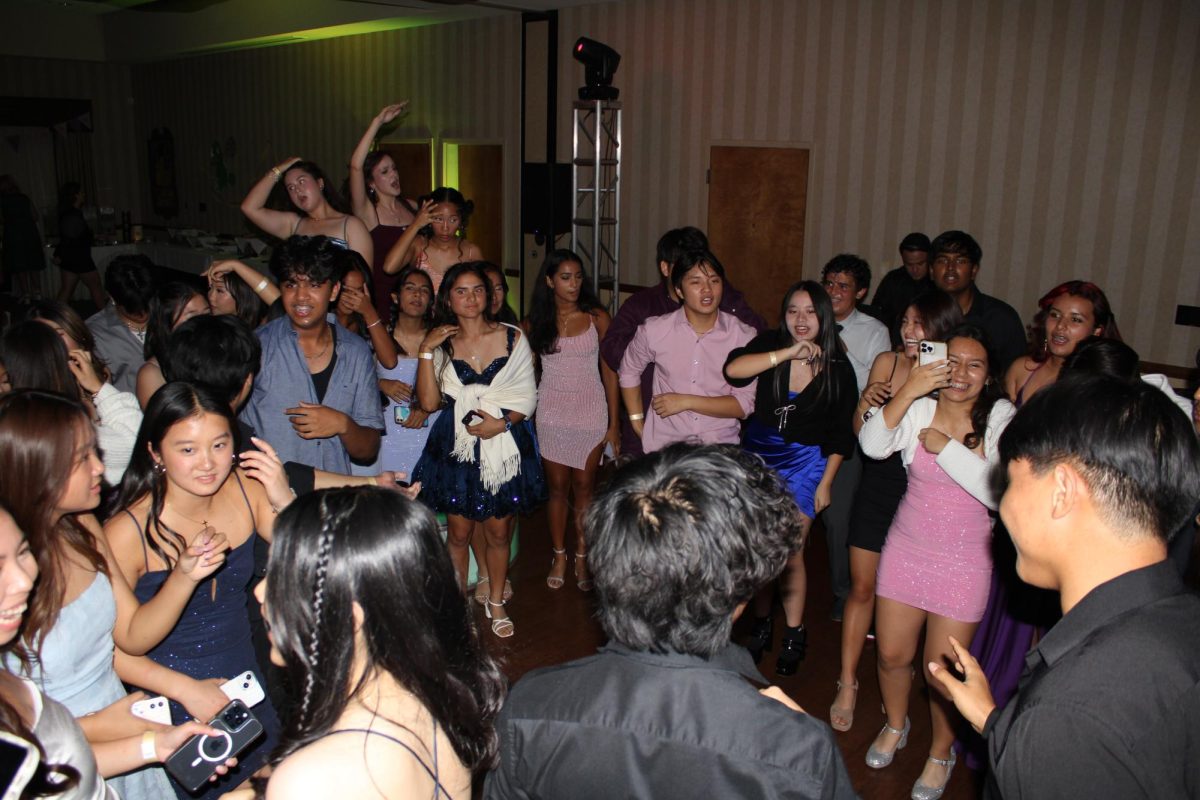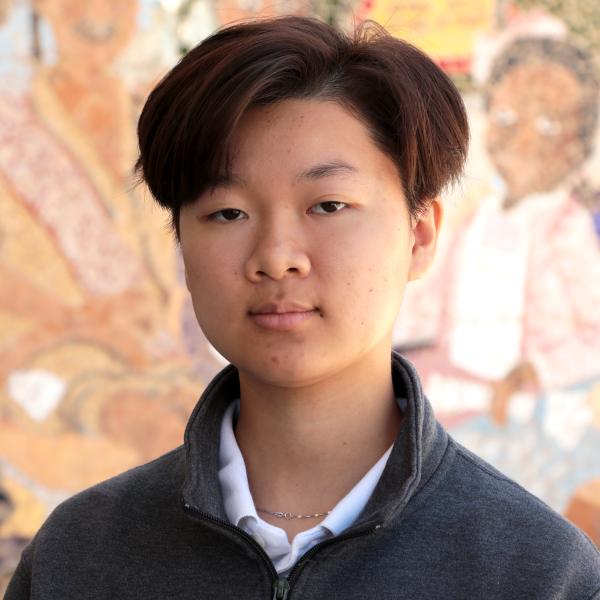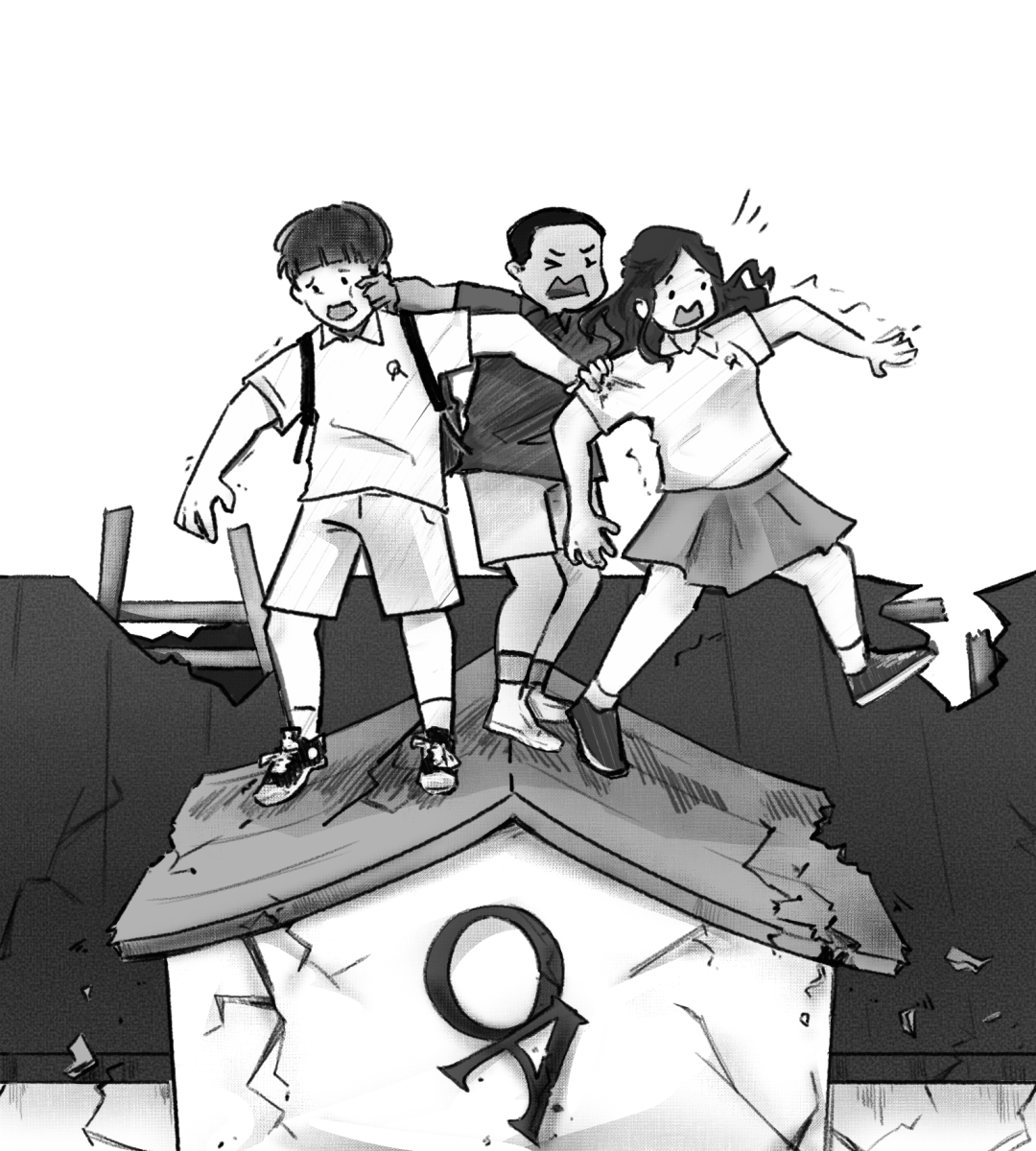
On the morning of Dec. 4, Luigi Mangione allegedly shot and killed UnitedHealthcare CEO Brian Thompson on the streets of New York City. Within days, Mangione was arrested and charged with second-degree murder and terrorism. The case highlights a larger, blatant truth about the American working class who are desperate and angry — for good reason. While political violence isn’t the sole solution, this event paves a step toward class consciousness and solidarity to address systemic injustice and corporate immunity.
Contrasting mainstream media’s response to the assassination, social media has immensely poured sympathy and support towards Mangione, hailing him as an “anti-hero.” In a country where millions live paycheck to paycheck, burdened by skyrocketing costs of living among stagnant wages, all while buried in medical debt, the overwhelmingly positive response to Mangione is no surprise. For many Americans, healthcare is not a guaranteed right but a gamble determined by insurance claims and the ability to afford costly policies. Meanwhile, the mega-corporations behind this system, such as UnitedHealth Group, report record profits and reward their executives with exorbitant bonuses. Protected by wealth and status, these companies wield the power to make life-changing health decisions for ordinary citizens, remaining untouched by any devastating consequences.
In this context, the public’s lack of empathy for a CEO who has “indirectly” killed their loved ones through medical insurance denials is easily understandable. Mangione’s actions epitomize the larger class struggle in America, capturing the universal resentment towards the executives upholding systemic inequality, as nearly everyone, no matter their political ideologies and personal identity, has been negatively impacted by the broken health insurance system.
However, this widespread support for Mangione, particularly online, reveals the disconnect between the public and the governing systems. Political leaders, from President Donald Trump to Pennsylvania governor Josh Shapiro, and traditional media swiftly condemned Mangione’s vigilante political violence and disparaged the public’s ample support for him. Yet their attempts to spin Mangione as a disgruntled murderer and an attack on civil democracy, while desperately trying to humanize the UnitedHealthcare CEO, has rang hollow for most of the nation ⎯ especially when it appears greater violence comes from the hands and everyday decisions of corporate executives. When CEOs prioritize their own wallets over the well-being of America’s majority, the harm they create is rarely portrayed as violent by the media. While Mangione faces terrorism charges for killing one man, healthcare insurance companies, whose profits depend on systemically hurting people, are shielded by the law. For working-class Americans, in a nation where billionaires have created an oligarchy, the hypocrisy of democracy and justice is glaring.
Mangione’s actions on Dec. 4 won over the court of public opinion and incited a growing awareness of class consciousness in a nation infatuated with the polarized culture war. Combined with years of shared suffering from government neglect and corporate greed, the event forced millions of Americans to reckon with the overgrown power wealthy corporations lord over the U.S., not just in healthcare, but all spheres of society. The challenge now is how to channel this rare opportunity of working-class unity and anger in this deeply divided country into sustainable collective action. Supporting each other in solidarity, through methods such as grassroots organizations — nonprofit community-based advocacy groups — and workers’ strikes, is essential for nurturing the momentum needed to dismantle systems perpetuating inequality.
Political violence can never be the only solution for change, but allowing corporations to act freely with no accountability or consequences for their immoral and even violent actions isn’t a plausible route either. The American public has long suffered at the hands of corporate political influence and government inaction, as the upper class benefited. While Luigi Mangione’s actions are extreme, they force the working class to open their eyes to systemic injustice. This must not merely be a fleeting and forgotten moment, but the first step towards lasting solidarity and action to create a country that benefits everyone.


























































